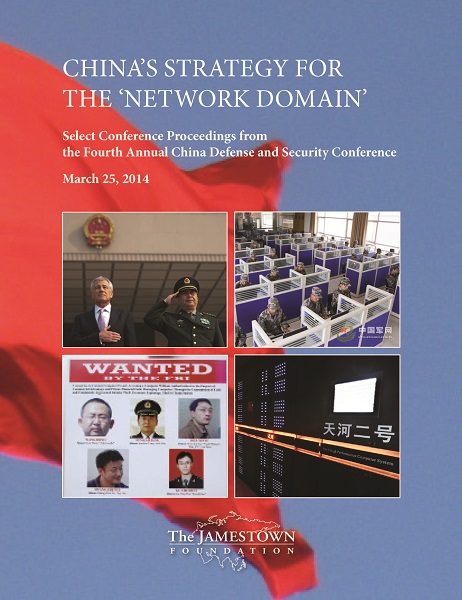China’s Strategy for the ‘Network Domain’ Conference Report
The Jamestown Foundation offers a glimpse at Chinese responses to the rise of “cyber-war.”
While the rise of computer network exploitation has opened new opportunities for China to gather intelligence—and exposed U.S. government agencies and corporations to risks of espionage—Chinese planners are keenly aware of China’s own vulnerabilities. Viewing the country as an underdog facing threats from “the world’s only network superpower,” both military and civilian thinkers continue to debate the implications of cyber-war, intelligence gathering, and to seek an approach to protect China’s own networks.
On March 25, 2014, The Jamestown Foundation organized a panel titled “China’s Strategy for the ‘Network Domain’ as part of its annual China Defense and Security Conference. This panel report contains full-length transcripts of four presentations and a question and answer session.
Joe McReynolds, a research analyst at Defense Group, Inc.’s Center for Intelligence Research and Analysis, describes Chinese Viwes of Offense and Defense in the Network Domain, explaining the how the “network domain” differs from “cyber war,” what it means for Chinese strategy and operations and how Chinese military thinkers approach deterrance and escalation in network war.
Jamestown Fellow Peter Mattis explains The Role of Computer Network Exploitation in China’s Intelligence and Strategic Practices, explaining how hacking fits in with traditional intelligence gathering, what it means for Chinese leaders’ ability to understand the world and how it has made China a “first-rate intelligence power.”
Leigh Ann Ragland, a research analyst at Defence Group Inc.’s Center for Intelligence Research and Analysis, covers The Chinese Approach to Defending Cyberspace, a profile of Xu Rongsheng, China’s first cyber-security expert, illuminating the bureaucratic challenges that have stymied Chinese efforts to develop a strategy for defending its networks.
Russell Hsiao, Non-Resident Senior Fellow at the Project 2049 Institute, explains Chinese Cyber-War Up Close: The View from Taiwan, drawing lessons from Taiwan’s 15 years of experience of network attacks from mainland China.




